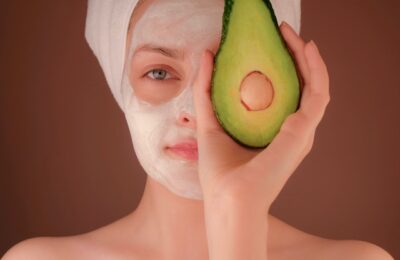Over the next year in full swing, stressful situations tend to accumulate: departure or return to work, changing schools, exams, change of job or move …
Worse, the small daily stress comes’ add to deeper stressors are our intimate dissatisfaction and our inability to live in mindfulness (would we all neurotic?).
- What impact has the stress on the skin?
- What practical solutions against the stress?
- And how to minimize its harmful effects on sensitive skin?
— These are the some common question we all have in our mind.
Stress and skin:
In dermatology, there are two types of stress which affect the skin:
First, we know the famous oxidative stress is responsible for the deterioration of our cells and skin aging. This “physical” stress is caused by free radicals, which in turn generated following several external factors such as exposure to sunlight, tobacco or pollution. This is mainly because of him that wrinkles appear!
More recently, dermatologists were interested in the nervous stress or “psychological” which seems to have a significant impact on the functioning of the skin. The skin is indeed directly connected to the nervous system via the neuroendocrine component thereof. Anyone can see that, as a result of stress, many skin conditions have experienced remarkable breakouts. This is especially the case for eczema, alopecia areata or psoriasis. Many people have heard say after treatment failure with corticosteroids: “It’s the stress that is responsible!”
In reality, the body triggers nerve in response to stress a series of events (hormonal or not) that impact on the organs. The skin is not spared and reacts. Blush or pale, itching, have hairs that stand or sweaty hands are well-known events of all. In some cases less scarce, the skin reacts pathologically (eczema, itching, dermatitis …).
Stressed, my skin?
By dint of repeated stress caused by stress, the skin’s barrier function may be impaired. This gives a less comfortable and less well hydrated skin. In addition, stressed skin is more reactive: sudden allergies can occur, as well as irritation or itching that will be the source of eczema or course the famous psoriasis.
Oxidative stress is also a factor of skin aging. Mature skin is theoretically more “stressed” than others or has been.
How to reduce stress for my skin?
Against the oxidative stress first of all, it is clear that conventional beauty tips are even more valid: avoid the intense UV exposure, use sunscreen and avoid sudden exposure to cold or heat, not smoking and drinking enough water are essential bases.
Diet can also enrich it with foods rich in vitamins, especially beta-carotene (a good antioxidant for the skin) found in fruits and vegetables colored (carrots, peppers, spinach, etc …). Also think of drinking green tea freshly brewed, opt for red fruits in season, etc…
The most documented vegetable oils for their antioxidant power are perilla, evening primrose and to a lesser extent argan and rosehip. They can be added in the base but also the massage daily in serum on the body or the face below the cream.
To reduce the nervous stress, use aromatherapy (see below) but you can also take care to spare moments of meditation during the day. If this is not possible, we can breathe better exercise throughout the day. Breathing through the belly, deep and slow, can be practiced during the day or when the toilet. Lying comfortably (e), we can see his body swell and release air within minutes.
Nervous stress may also be mitigated by various practices that relax and empty head: relaxation therapy, yoga or tai chi. The problem of stressed skin is often that of letting go. Think about it!
Aromatherapy
The essential oils mixed with the vegetable cosmetic and slow allow both a need to treat skin while also aligning nerve sphere.
Easy recipe: add 1 drop of essential oil of petitgrain bitter orange or 1 drop neroli your day cream dose. Heat the dose mixed in hands. Breathe calmly your palms before applying the treatment on the face and neck. A mini relaxation session for the skin.
Many essential oils blend perfectly nervous sphere. For dry skin, often found Damascus rose, neroli, myrrh and frankincense. For oily skin, you may use the lavender, green myrtle or laurel. Petitgrain bitter orange is ideal for all skin types.
The grandmother tricks
We can also fight against the effects of stress on the nervous skin by applying cold compresses soaked in chamomile tea, lime or hawthorn on the face, eyes, or redness.
Put simply, it is also possible to cool the palms of the hands rubbing with ice before placing them on closed eyes and breathe deeply for a moment. This is an anti-stress action minute for the skin!
Also reread my article tips against allergies natural , some can help the skin to be more resistant to stress.
Intelligent cosmetics
Some products carry the Slow Cosmetics Mention
Many brands also offer cosmetic treatments that promise to desensitize the skin and make it more resistant to stress.
Attention opt for Slow Cosmetics. Your products should ideally not contain synthetic fragrances, synthetic preservatives or irritants surfactants. This care is therefore primarily good moisturizers that restore the barrier function of the skin. They are formulated with oils or soft vegetable butters (jojoba, calendula, shea or coconut) and contain active that soothe the skin so that the spirit (soothing essential oils, plant extracts of mallow, chamomile, etc).













